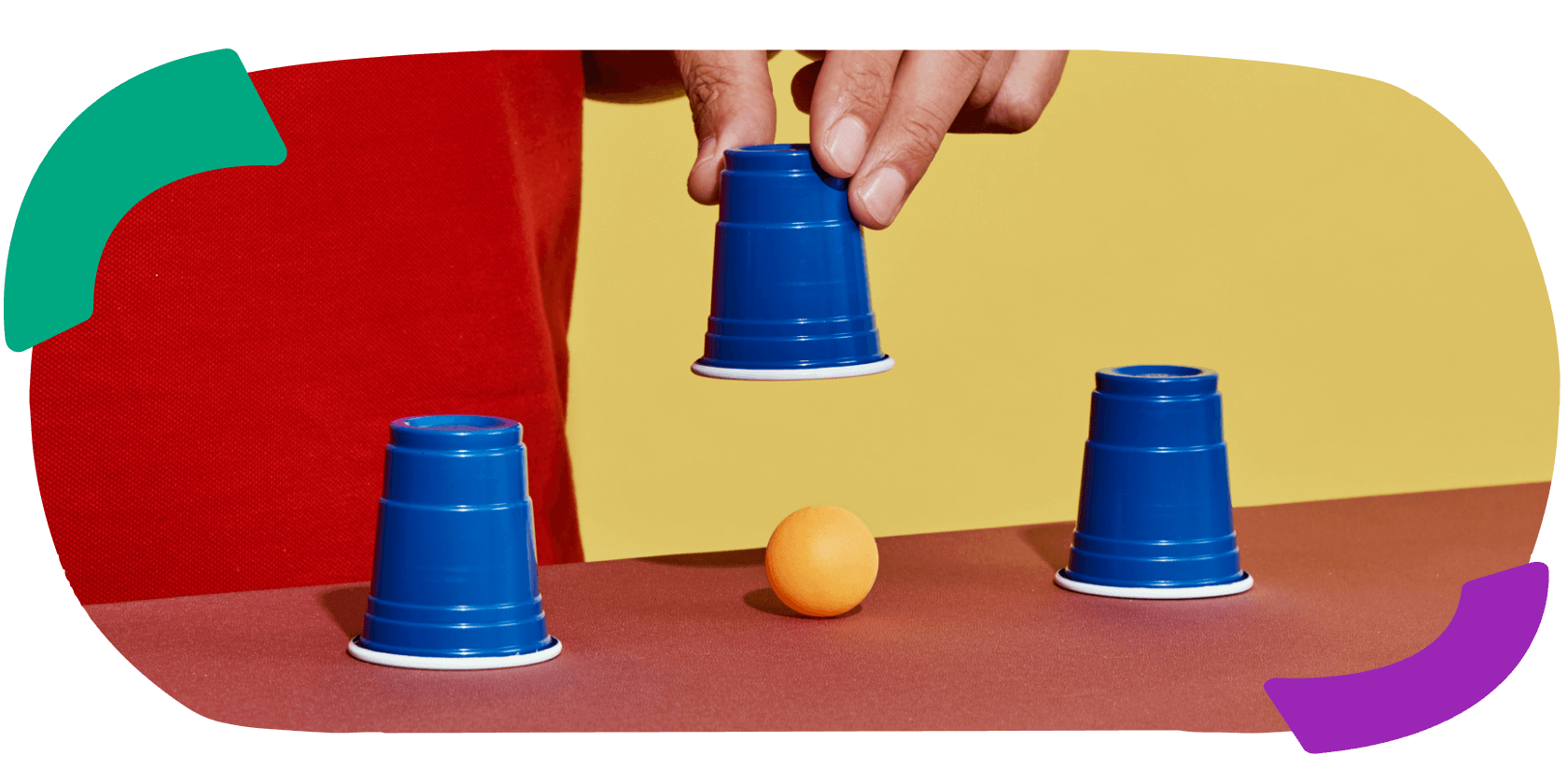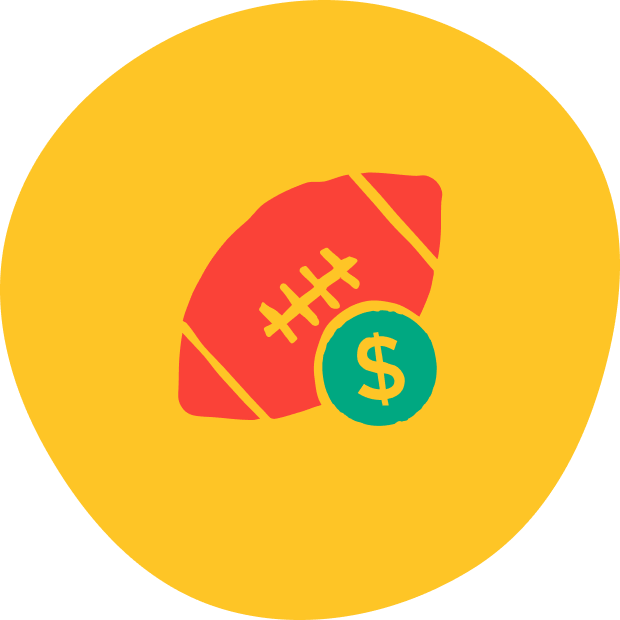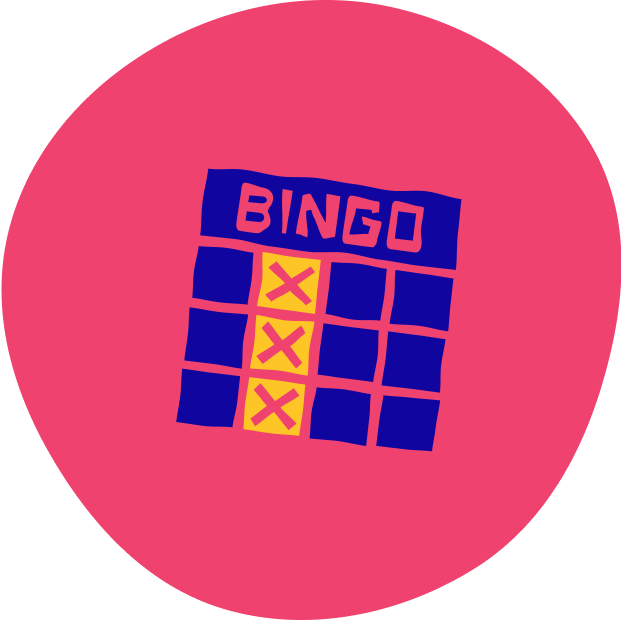By the time you reach the age of 18, you actually have a greater chance of developing a gambling problem than an adult – that’s why it’s important to know about gambling risks now.
Learn About Gambling
I Know What Gambling Is. Or Do I?
Gambling can happen anywhere, not just at casinos and racetracks. It happens at sporting events, church halls, and it could even happen in your very own living room. That’s because raffles, fantasy sports and sports betting are all forms of gambling, too.
Here’s a simple way to know if it’s gambling or not: Gambling happens when you play games of chance or skill and risk losing something for the chance to win something else, usually something better or of greater value.
For example, if you place a bet on a soccer game with friends, even if you’re just betting a small amount of money for the chance to win more money … that’s gambling.
Odds Are You’re Confused About Odds
Odds are how many chances there are to lose for every chance there is to win. For example, if 100 people enter a draw, there are 99 chances the winning ticket won’t be theirs (they lose) and one chance that it will be theirs (they win). So, the odds are 99 to 1 (99 chances to lose and 1 chance to win).
Often in gambling, the more chances there are to lose, the bigger the potential win. That can be tricky because people want to play more when the jackpot is bigger, but they might not realize that their odds of winning are smaller.
Some Gambling You’ve Probably Heard Of
I’m Gaming, Not Gambling, Right?
Yes and no. Online gaming is great. You play with your friends, you learn new skills, you get to explore brave new worlds. Just be careful, because online gaming and online gambling can have a lot of similarities.
Think about it. You can do both on your phone or computer, they both have elements of skill and chance, and it’s all very stimulating. And gaming platforms often offer gambling-like elements, like loot boxes. The things you win in a loot box don’t have actual monetary value, but they can be sold or gambled outside the game. And when you pay for a loot box, you don’t know what you’ll get … which is a lot like gambling.
Online gaming has some risks too, like if you play too much and it gets in the way of doing the things you have to do, or you stop spending time with your friends. Keep a time limit in mind when you game, just like people who gamble should do.
Why It’s Good to Think You’ll Lose
Whenever people gamble, there’s always a chance they could win. But there’s a much greater chance that they will lose. So, the best thing a person can do is expect to lose. That way they’re likely to put less at risk. If you decide to gamble when you are legally allowed to do so, it’s best to see gambling as entertainment, not a source of income.
No Such Thing as a Sure Thing
Well actually, there is one sure thing in gambling – the ‘House’, a.k.a. the place you’re placing your bets with, ALWAYS wins in the long run. That’s because they make sure that the odds are in their favour.
No matter what game you choose to play, the odds of the ‘House’ winning your money are always greater than the odds of you winning their money. Why? Because every single game is designed to provide the house with a built-in advantage. But think about it – if they didn’t win more than their customers, they wouldn’t be in business.
Let’s Get Myth-ical
Everyone’s different and everyone can think differently about gambling, but there are some common myths that are widely believed. Remember though, just like the name suggests, these “myths” are stories people tell themselves, not facts.
- Myth #1
Playing fantasy sports isn’t really gambling, if you study your stats.
False
Actually, no matter how diligently you study the teams and all the stats related to them, random events can sometimes play a part in the outcome of a game e.g. players get hurt, and suspensions happen. This means that each game can never have a guaranteed outcome so there’s no such thing as a sure thing!
- Myth #2
I’m due for a win.
False
Future gambling outcomes are not influenced by previous gambling outcomes. For example, if you flip a coin and it lands heads 100 times in a row, you may think that the next flip HAS to be tails, because it’s “due”. But each time the coin is flipped there is still an equal chance (50-50) that it will land heads or tails each time.
- Myth #3
I win a lot when I’m social gaming, so I’ll probably win a lot when gambling, too.
False
Virtual games are often designed to have better odds and pay out more virtual money than gambling in real life, leading you to think that winning money by gambling is much easier than it really is.
- Myth #4
Some numbers are luckier than others.
False
Not true. You may have seen your parents or relatives buy lottery tickets and use birthdays to pick the numbers, or have a special series of numbers they play every week. Doing this does not make it more likely that a person will win. This is because the winning numbers are chosen randomly which means that all number combinations have an equal chance of winning – there is no set pattern or predictability of certain numbers over other ones.
- Myth #5
I have a feeling today is my lucky day. I just know I’m going to win.
False
Many people who gamble believe luck is a real thing and plays a part in winning or losing. Gambling activities have random outcomes though. Having a lucky day or a good luck charm cannot influence the result of gambling activities so luck is not something you can count on.
The Impact of Gambling
What happens when someone gambles? Learn about why someone might choose to gamble and what happens when they do.
Learn More
Expand Your Mind in the “House of Wisdoms”
Now’s a good time to play “House of Wisdoms!” These three brain-stimulating games could help you in the long run. That’s because, as a young person, your brain is still developing and the part that controls emotion and logic isn’t fully finished yet (weird but true!). As a result, you’re going to be more likely to run into problems with gambling than someone who’s already an adult.
Play House of Wisdoms now!








